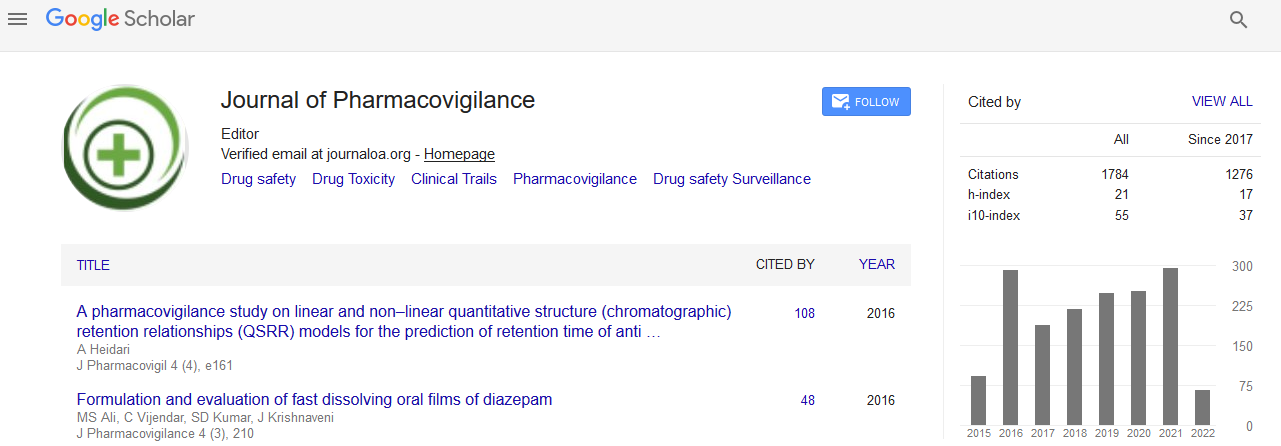Indexed In
- Open J Gate
- JournalTOCs
- The Global Impact Factor (GIF)
- RefSeek
- Hamdard University
- EBSCO A-Z
- OCLC- WorldCat
- Publons
- Euro Pub
- Google Scholar
Useful Links
Share This Page
Journal Flyer

Open Access Journals
- Agri and Aquaculture
- Biochemistry
- Bioinformatics & Systems Biology
- Business & Management
- Chemistry
- Clinical Sciences
- Engineering
- Food & Nutrition
- General Science
- Genetics & Molecular Biology
- Immunology & Microbiology
- Medical Sciences
- Neuroscience & Psychology
- Nursing & Health Care
- Pharmaceutical Sciences
Abstract
Hospital Doctors’ Views and Concerns about Pharmacovigilance
Vallano A, Castañeda PF, Quijada Manuitt MA, Simon PC, Pedrós C, Quintana B, Esterlich E and Arnau JM
Purpose: The aim of the study was to evaluate the opinions and concerns of hospital doctors about adverse drug reactions (ADRs) and pharmacovigilance. Methods: A qualitative study was undertaken using focus groups in sessions on pharmacovigilance activities conducted in thirteen clinical services of a tertiary university hospital. A total of 296 physicians participated in these sessions by giving their opinions or expressing their doubts about ADR and pharmacovigilance activities which were recorded by different observers and subsequently analysed. Results: Doctors remarked on: a) the importance, concern, frequency and specific types of ADRs that were observed in clinical practice; b) problems of clinical decision making related to the suspected ADRs; c) methods for improving detection and reporting ADRs; d) monitoring of specific ADRs or ADRs caused by specific drugs; e) and measures to prevent and minimize the risk of ADRs. Physicians expressed doubts related to: a) the basic concepts of ADRs; b) the methods of ADR identification and evaluation; c) the objectives and procedures of pharmacovigilance programmes; d) and the impact of pharmacovigilance activities. Conclusions: Hospital doctors believe that ADRs are a matter for concern in their daily clinical practice, and monitoring ADRs as well as measures for preventing the risk of ADRs are needed. Nevertheless, doctors have doubts about what an ADR is, the accuracy of diagnostic methods, the development of pharmacovigilance activities and their impact on clinical practice. Pharmacovigilance should be better explained through a continuous feedback and close relationship with hospital doctors.


